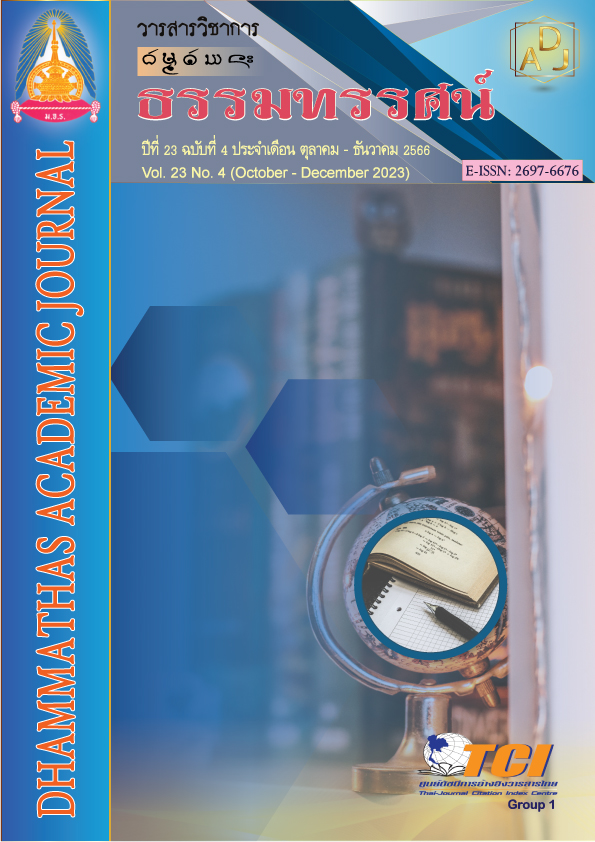The Development of the Quality of Life in Mangala Sutta
Main Article Content
Abstract
The doctrines in the Mangala Suttawere principles for improving the quality of life that aimed to lead to both physical and mental well-being, arising from receiving physical, psychological, social and other responses related to life Beliefs, values, morals and ethics are forged to create balance with elements indicators in various aspects reflected the quality of life at the beginning, low level and high level in the auspicious Mangala Sutra, emphasizing the importance of 2 parts: 1) improving the quality of life in the world; to achieve the basic necessities of living, 2) Development of the quality of life through Buddhism; to live with wisdom, solve suffering with wisdom, it was to improve the quality of life by building a life on the basics and taking him away from worldly pleasures to spiritual freedom above all suffering.
Article Details

This work is licensed under a Creative Commons Attribution-NonCommercial-NoDerivatives 4.0 International License.
เพื่อให้เป็นไปตามกฎหมายลิขสิทธิ์ ผู้นิพนธ์ทุกท่านต้องลงลายมือชื่อในแบบฟอร์มใบมอบลิขสิทธิ์บทความ ให้แก่วารสารฯ พร้อมกับบทความต้นฉบับที่ได้แก้ไขครั้งสุดท้าย นอกจากนี้ ผู้นิพนธ์ทุกท่านต้องยืนยันว่าบทความ ต้นฉบับที่ส่งมาตีพิมพ์นั้น ได้ส่งมาตีพิมพ์เฉพาะในวารสาร วิชาการธรรม ทรรศน์ เพียงแห่งเดียวเท่านั้น หากมีการใช้ ภาพหรือตารางของผู้นิพนธ์อื่นที่ปรากฏในสิ่งตีพิมพ์อื่นมาแล้ว ผู้นิพนธ์ต้องขออนุญาตเจ้าของลิขสิทธิ์ก่อน พร้อมทั้ง แสดงหนังสือที่ได้รับการยินยอมต่อบรรณาธิการ ก่อนที่บทความจะได้รับการตีพิมพ์References
พระพรหมคุณาภรณ์ (ป.อ.ปยุตฺโต). (2555). ธรรมกับการพัฒนาชีวิต. (พิมพ์ครั้งที่ 5). กรุงเทพฯ: สหธรรมิก.
มหาจุฬาลงกรณราชวิทยาลัย. (2539). พระไตรปิฎกภาษาไทย ฉบับมหาจุฬาลงกรณราชวิทยาลัย. กรุงเทพฯ: มหาจุฬาลงกรณราชวิทยาลัย.
รุ้งนภา ยรรยงเกษมสุข. (2559). โลกาภิวัตน์ท้องถิ่นนิยมกับการโหยหาอดีต. วารสารเศรษฐศาสตร์การเมืองบูรพา, 2(2), 1-13.
สุทธิพร บุญส่ง. (2552). คุณธรรมจริยธรรมกับการพัฒนาคุณภาพชีวิต. (พิมพ์ครั้งที่ 3). กรุงเทพฯ: ทริปเพิ่ล เอ็ดดูเคชั่น.

